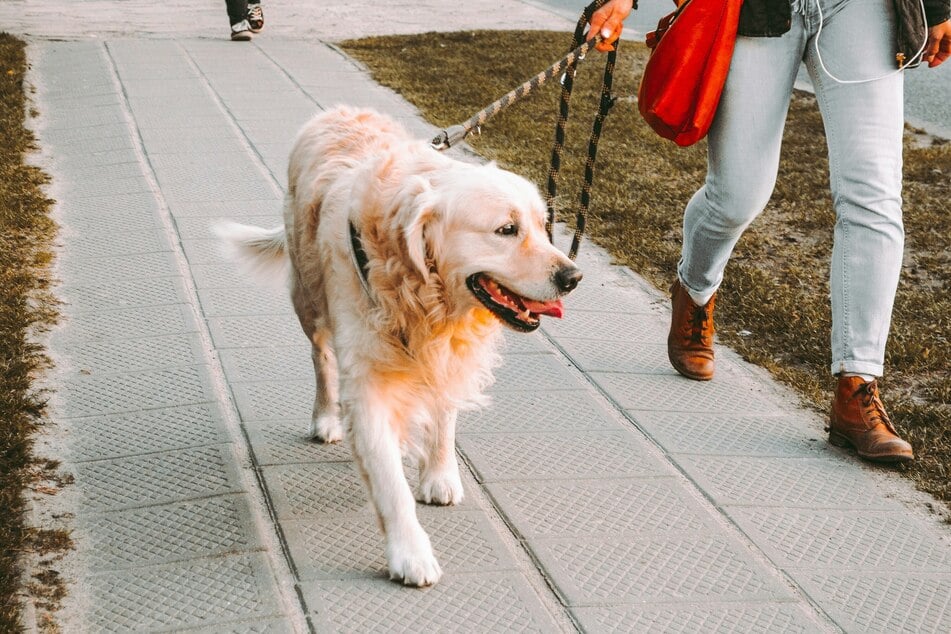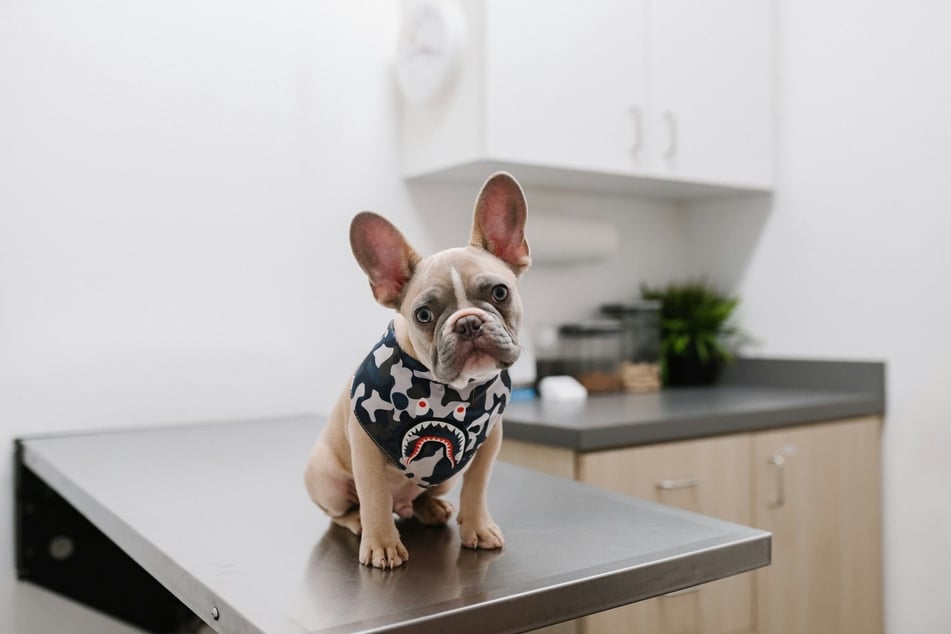Dog depression: Why is my dog sad?
Many people opt to get a service dog for anxiety and depression, but what happens if the pooch is the one suffering from depression? What are the signs, symptoms, and treatment for a sad puppy dog?

If you didn't know that dogs can get depressed just like humans, then now you do!
Understandably, it can be difficult and scary for owners when their dog develops signs of depression.
But what is dog depression and what causes it? And more importantly, how can you recognize it and help?
Just remember that there is a way through the situation so that your pooch can start to feel tip-top again.
Here are some useful steps!
Can dogs get depressed?
While the jury is still out among veterinarians on whether dogs experience depression the same way that people do, animals can certainly get down in the dumps.
They are especially susceptible to sadness or anxiety during periods of change, but long-term depression is a little rarer.

What is dog depression and why is my dog sad?
Dog depression is a state of prolonged sadness, apathy, and sometimes anxiety.
Depression can affect how your dog behaves, thinks, and feels. It can result in decreased appetite, lack of interest in activities like play, and excess fatigue.
So, why would a dog experience depression?
Answers can range from a change in their home life to an underlying health issue that needs to be addressed by a veterinarian.
It's not technically considered a medical emergency if your dog is depressed, but don't ignore the signs of dog depression – your pup needs you to be their advocate.
In other words, if your previously happy-go-lucky pooch is acting out of the ordinary, then it might be time to consult a professional animal healthcare specialist for assistance.
What causes dog depression?

Dog depression is typically caused by either environmental or medical changes.
Causes of dog depression can include but are not limited to the following:
- Moving into a new home
- Family conflict
- Adding to the family, like a new spouse, a new baby, or a new pet
- The death of a family member – dogs can pick up on grief in their humans
- People leaving the household, as in the case of divorce and kids going off to college or moving away
- Changes in the dog's schedule, like a stay-at-home owner starting a new job
- Underlying diseases or ailments – for example, dogs who feel sick with undiagnosed conditions like diabetes or arthritis
- Lack of attention, regular exercise, or mental stimulation
- A traumatic event like a serious injury, a dangerous or scary situation, or prolonged neglect/abuse (which is sadly the case in many rescue dogs)
Dog depression signs and symptoms
The signs and symptoms of depression in your pet dog can include:
- Destructive behavior
- Lack of appetite
- Lack of interest in activities like play and cuddles
- Droopy or sad-looking eyes
- Ears that are pulled back
- Whimpering
- Howling
- Clinginess/neediness
- Vomiting
- Restlessness
- Lethargy or other changes in sleep patterns, such as sleeping a lot more or a lot less than usual
If your dog displays one or more of these symptoms, it might be time for a full checkup with a vet. Those symptoms could mean that your dog is depressed, but they might also be indications of other medical problems.
There isn't a single simple test to diagnose depression in dogs, but animal healthcare providers can discuss their symptoms and any potential recent lifestyle changes with you.
They may also opt to run tests like blood work or urinalysis to rule out other potential contributing factors and decide if your dog is possibly suffering from something mental, physical, or both.
If physical illness can be ruled out, the next step would be a consultation with an animal behaviorist who can guide you on what to do in order to help your loyal pet feel better.

Dog depression after getting a new dog
Any changes in a dog's routine or lifestyle can trigger sadness or anxiety, and bringing a new pet – especially a new dog or puppy – into the household is definitely a big change!
If you notice signs of depression or stress in your dog after getting another pet, you might need to make sure that the old pooch doesn't feel replaced or intimidated by your new family member.
Make sure to give Fido some extra love and reassurance, and foster positive interactions between the new furry siblings to make the transition smoother.
You can even give your dogs special treats or toys when they interact so that they can start associating one another with happy things!
Can a dog die from depression
Dogs cannot die from depression alone.
That being said, an underlying health condition that may have depression as a symptom can potentially put your dog's life in danger.
Also, behaviors associated with depression in dogs like not sleeping, eating, or drinking water can cause serious health problems for your pet if left unaddressed.
When in doubt, ask a vet for guidance – they'll know what to do.

How to treat dog depression

Treating dog depression may depend on the cause of the sadness.
For example, if the low mood is caused by the death of another pet in the family, adopting or fostering a new animal friend for your dog may help alleviate their loneliness.
In another example case, perhaps blood work reveals that the dog has an infection that needs to be treated with antibiotics. Once that's taken care of, they may feel more like themself again.
If another more chronic medical condition is found like arthritis, then pain management, joint supplements, and/or pet orthopedics can help the dog and improve its mood.
Always make sure to factor in the needs of the family and the dog in any big decisions, however.
If the dog's depression persists after various social and environmental changes like giving them additional attention – more car rides, extra walks, and special treats – then you may need to ask your vet for an animal behaviorist recommendation and/or to explore pharmacological options.
Some dogs have traumatic pasts and need medication to help them recover.
But never give your dog medication without direct instruction and guidance from animal medical professionals. If everything else has failed, then medication might help give your dog a better quality of life.
The medications given to dogs are often the same as those used by humans: Prozac, Zoloft, and Paxil. They may also be prescribed Clomicalm, an FDA-approved separation anxiety drug for dogs.
It can take up to two months for drugs to become effective, and – unlike humans – most dogs stay on antidepressants for six to 12 months before being taken off.

Tip: Pay attention to signs of mood improvement, like a lot of tail wagging during certain activities. That might be something your pup particularly enjoys and so adding more of it into their schedule could be a good idea in their healing journey.
Reward signs of mood improvement – yummy treats, praise, and cuddles can help an already slightly better mood become much better.
That being said, be very careful not to reward or encourage negative behavior. If a dog is moping around and they get treats and attention every time they do it, then the dog may associate their sad behavior with rewards and do it more often.
How long does dog depression last?
With extra care and attention, most dogs can bounce back from depression within the span of a few days to a few months.
Have patience and stay consistent with the lifestyle changes you're putting into place to help your pooch come out of their sadness.
You can do it! If you follow what your animal healthcare team advises, then things will slowly start to get better every day until your pup is feeling like their old doggy self again.
Dog depression should be treated
Don't just try to wait it out and hope for the best. Make sure to check in with your vet team throughout the process and give them progress reports.
If you do more fun, caring, and engaging activities with your dog, then you're likely to see some positive results!

With some tender loving care and determination, your dog will be feeling better in no time.
And remember – they can't speak up for themselves, so you need to step up and do what it takes to get your pet through any health issues they might be having with the aid of medical professionals.
Cover photo: Unsplash/Alice Cullen
